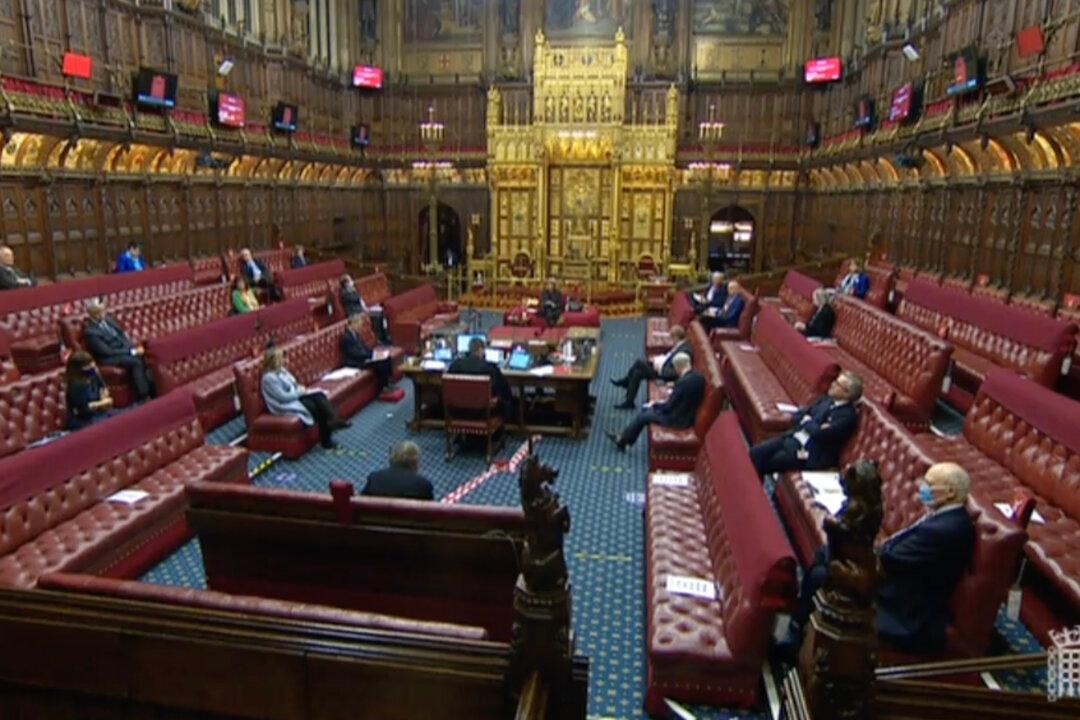An amendment aiming to stop and prevent the UK from doing bilateral trade with genocidal countries passed in the House of Lords on Tuesday by a two-thirds majority despite the Conservative government’s objection.
A previous version of the amendment was passed on Dec. 7 by 287 votes to 161, before it was narrowly defeated in the Commons.





